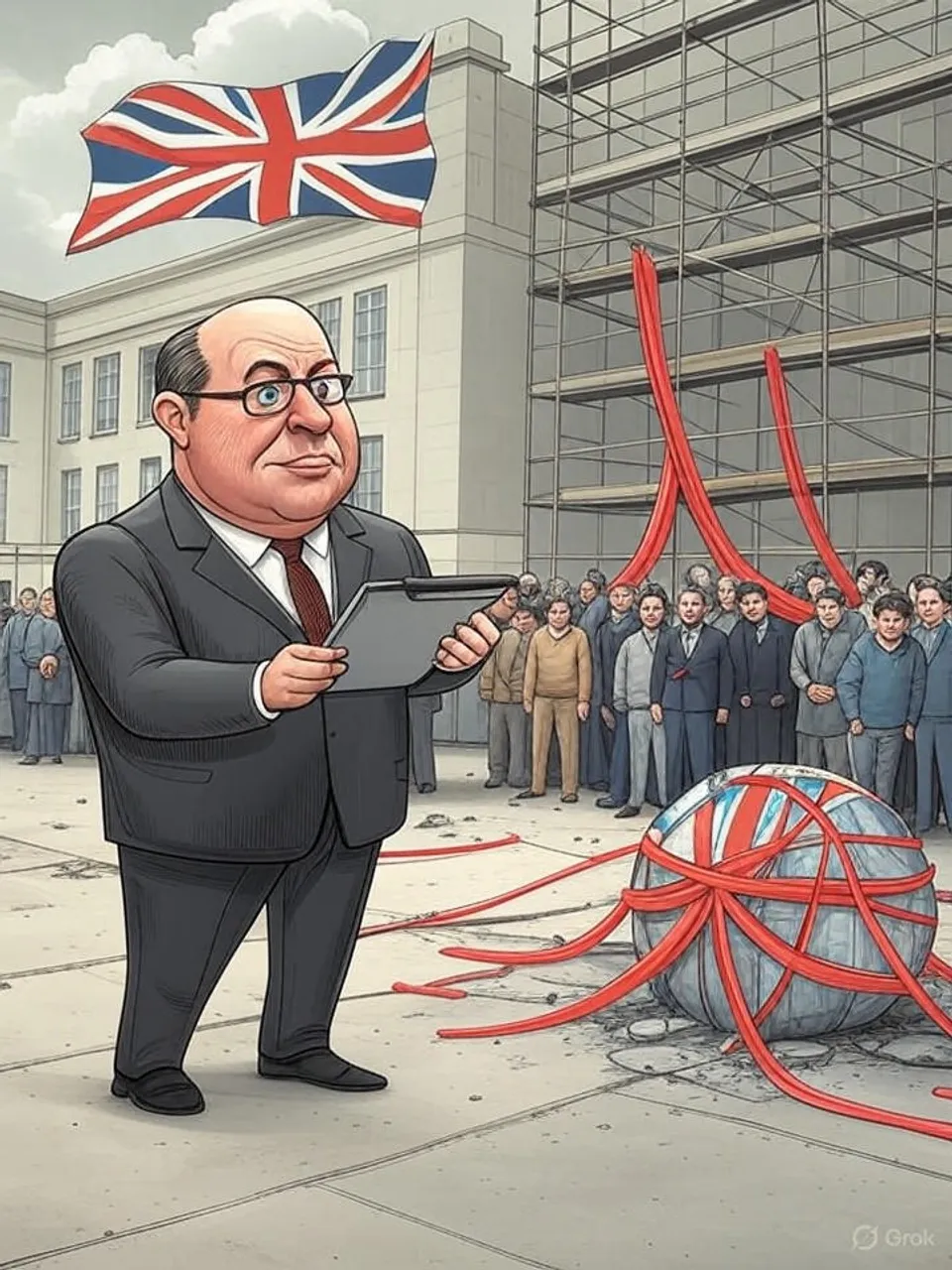Britain's Nuclear Push Stalls on Asylum Seeker Hiring Quotas

£22 Million Tender Yields No Orders as Social Mandates Dominate
The UK's SMR competition prioritizes impossible diversity quotas over energy goals, delaying reactors and inflating costs. This reveals procurement rules that hinder innovation and national priorities across governments.
Britain’s Nuclear Push Stalls on Asylum Seeker Hiring Quotas
Rolls-Royce SMR emerged as the government’s preferred vendor for small modular reactors after a two-year competition launched in 2023. Energy Secretary Grant Shapps called it the fastest process of its kind worldwide. Yet no reactors have been ordered, and experts predict construction will start in the Czech Republic before the UK.
The Social Value Act of 2012 requires public tenders to evaluate bids on social contributions alongside price. This includes hiring from underrepresented groups and promoting diversity. In practice, it elevates subjective criteria over direct costs to taxpayers.
Freedom of Information requests reveal the Great British Nuclear competition cost £22 million, with £19.78 million paid to consultants like Deloitte and Arup. Bidders faced 26 pages of social value questions, potentially generating 358 pages of documentation per submission. The weighting reached 12 percent, exceeding the official 10 percent guideline.
One requirement demanded efforts to employ asylum seekers in the workforce and supply chain. UK law prohibits asylum seekers from working, rendering this clause impossible to meet. Bidders still had to address it, diverting focus from technical merits.
Another stipulation targeted 50 percent gender balance by 2030 across the contractor’s entire operation and its supply chain. Nuclear engineering remains male-dominated, with university programs reflecting this imbalance. Enforcing parity in a complex, global supply chain within five years demands extensive monitoring and compliance efforts.
Rolls-Royce, a leader in submarine reactors, could export SMRs worldwide and bolster UK energy security. South Korea’s fleet approach in the 2000s and France’s in the 1970s controlled costs through standardization. Britain’s 1960s nuclear program similarly succeeded before procurement layers accumulated.
The tender’s design disadvantages innovators. A tech firm automating NHS paperwork might lose to a bidder with stronger diversity metrics, even if it improves patient outcomes. In nuclear, social value scrutiny risks inflating costs on already expensive projects.
Hinkley Point C and Sizewell C stand as the world’s priciest nuclear plants, built under stop-start policies. SMRs promised a fix, but the process extended timelines. Ontario’s utility ordered four Rolls-Royce SMRs in 2023, with the first operational by 2029.
Consultants profit from these mandates. The £19.78 million spend underscores how social value generates paperwork and advisory fees. Small businesses, lacking resources to document initiatives, rarely compete against giants like BT with established programs.
This procurement model persists across governments. The 2012 Act passed under the Conservative-Liberal Democrat coalition. Labour councils and Tory ministers alike enforce it, prioritizing measurable social outputs over project delivery.
Nuclear delays compound Britain’s energy woes. Emissions targets slip as fossil fuel reliance continues. Households face rising bills without reliable baseload power.
The pattern exposes institutional inertia. Rules meant to advance equity instead entangle critical infrastructure in unfeasible demands. Functional governance would streamline tenders to favor proven technology and cost control.
Britain’s nuclear ambitions falter not from technical shortcomings but from bureaucratic overlays that value process over results. This episode illustrates a deeper malaise: policies accumulate without evaluation, eroding capacity for decisive action. Ordinary citizens bear the costs in delayed security and higher energy prices, while consultants and large firms thrive amid the complexity.
Commentary based on Why is Britain trying to make our nuclear reactors ‘woke’? by Sam Dumitriu on The Spectator.